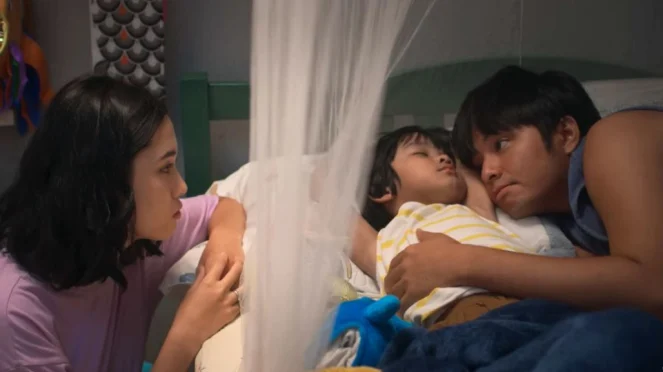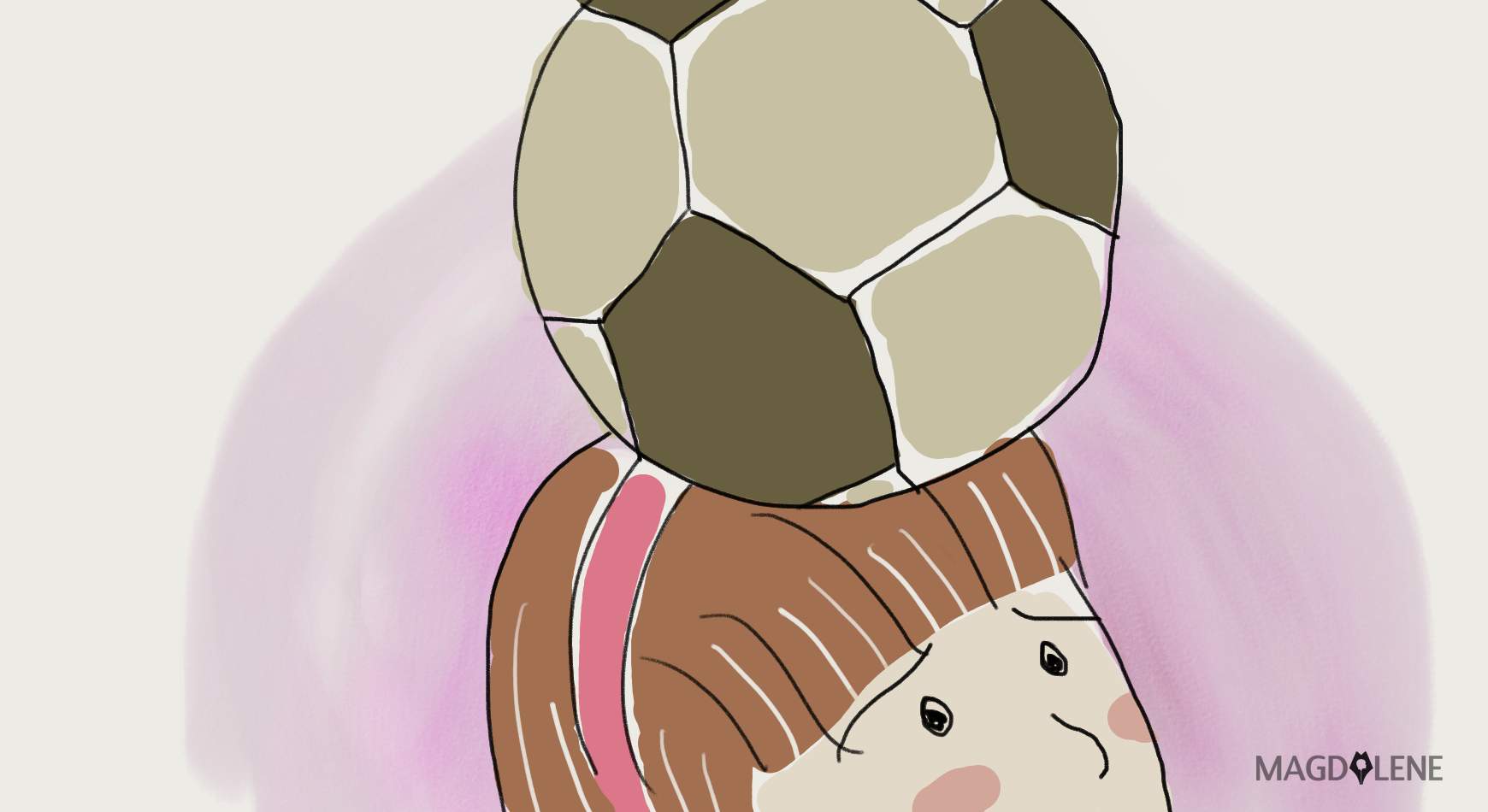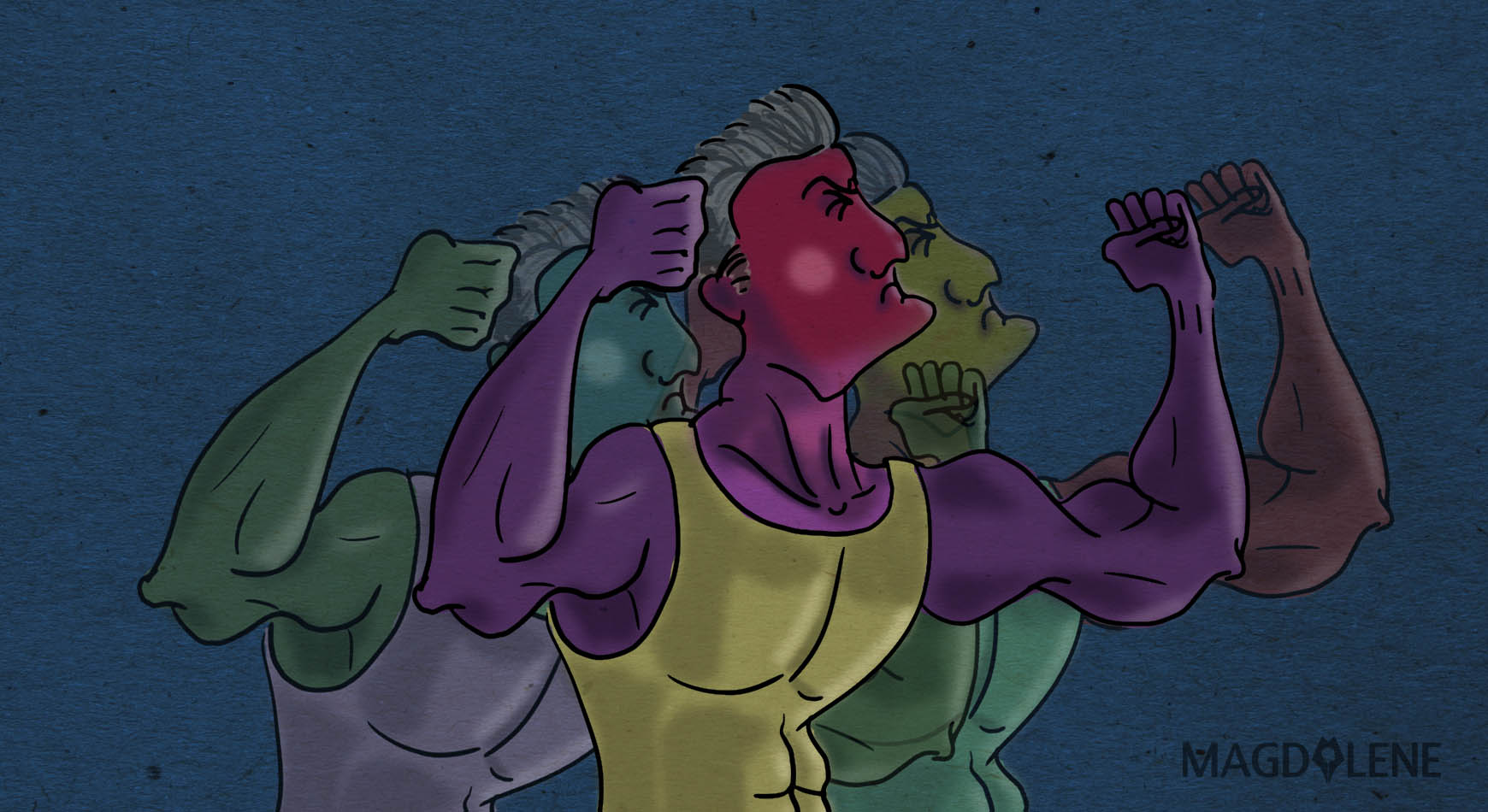Comprehensive Sex Ed Offers Solution to Teen Relational Violence
As a group that is vulnerable to gender violence, teens need comprehensive sex education based on gender equality.

*Trigger warning: Description of sexual violence, abuses, strong words*
During the six months she was dating “Toni”, “Sinta” was a constant target of his violent rage.
“He kicked me in the shin, and one time he elbowed me while I was riding a motorbike with him. A vein in my arm burst, leaving a bruise for a week.”
She got used to his swearing fast: “He would swear at me: ‘F**k you, you c**t, you’re just a whore! Do you know who you are?!’”Toni also often forced her to have sex with him. The constant violence caused Sinta, who was 17 at the time, to experience severe stress. She lost 10 kilograms, and her mother accused her of taking drugs.
Sinta is not alone. Teenagers engaged in romantic relationships are vulnerable to intimate violence. In a recent online survey conducted by Magdalene on adolescents aged 15-19 years, 1 in 10 respondents who had been in a romantic relationship said they had been victims of violence.
The violence come in various forms, ranging from sexual, verbal, psychological, to economic violence. And it takes places offline as well as online. Of the various forms of violence recorded, what stands out is psychological violence with as much as 69 percent of respondents. The others include 64.3 percent for sexual violence, and 59.5 percent for verbal violence.
The National Commission on Violence Against Women (Komnas Perempuan) also noted that out of nearly 300 thousand cases of violence against women in 2020, dating violence took second place or 20 percent in the category of violence that occurred in the private sphere.
Often teenagers are subjected to violence repeatedly in their romantic relationships, yet they have little awareness of the cyclical nature of the violence, let alone identify the violence they have experienced.
This is what happened to “Srikandi,” a 15-year-old teenager who was a survivor of violence by her own boyfriend.
“During my relationship with my ex, ‘Randy’, I didn’t realize I was being abused. I was forced to send a video of me masturbating for one minute. I refused at first, but he threatened to kill my parents if I didn’t do what he said.”
Srikandi said it was the first time she had masturbated, and instead of realizing she was being abused, she was filled with guilt.
“I only realized I was a victim as well as a survivor when a school counselor recently gave a material on sexual violence in an online class session,” she told Magdalene.
Also read: Is It True That Sexual Education Only Talks about Sex?
Roots of Violence Experienced by Teenagers
Outside a romantic relationship, teenagers are also highly vulnerable to violence by those closest to them. Often it involves the ones they are close with, whether a family member or someone they trust in their household.
This is what happened to “Deby,” a 19-year-old teenager who has experienced sexual violence since she was in the fourth grade of elementary school. It began when a friend of Deby’s father and mother, “Hartono”, forced her and her younger brother who was in the second grade to watch pornographic videos. After watching the porn, Hartono forced the two of them to sleep side by side with him in the middle.
“I remember how scary his gaze was at that time,” Deby told Magdalene.
During that moment, Hartono did not touch Deby, but ever since that incident Deby realized that her brother began to changed.
“My brother started to get weird. When he was playing, for example, he and his friend would argue over which one of them had a longer penis, and they would do that in front of me. He also started doing things to me.”
“When I was napping on my back, my brother came into my room and rubbed his penis. During the time he rubbed his penis against my body, I could only stay still, I didn’t know what to do,” she narrated.
This experience would repeat itself. Not long after she was harassed by her brother, Deby was also sexually assaulted by a man she did not know.
She was given a ride by a resident in her neighborhood at the time. Sitting in front of the driver, she felt her vagina being touched by the man twice. Deby felt confused but was so scared that she could not say anything.
She kept both incidents to herself and never told her parents. She was afraid of being scolded and even blamed for it, like when she told them about what their friends Hartono did to her and her brother.
“I was afraid that I would be scolded again. Mom had scolded me before, ‘How could you watch that when you’re still a kid?’, ‘Why did you just do whatever he told you to do?’ I felt like I was not understood, I felt like they were just blaming me and didn’t want to listen to me.”
Sinta, Srikandi, and Deby are victims of gender-based violence (GBV). Noridha Weningsari, a psychologist from Yayasan Pulih (Pulih Foundation), explained that GBV exists due to gender inequality in society.
“Gender inequality makes one party feel superior, better, have a more important role, and makes them feel that they have power while positioning the other party as inferior, weaker, less important,” she told Magdalene.
This creates an unequal relationship, and makes the weaker one more prone to being exploited and a target of violence. Inequality is widely visible in society. For young girls, the internalization of inequality has occurred since an early age. They often do not get the opportunity to make decisions, to express what they think and feel, and are also used to living in a rape culture.
Ultimately, when faced with manipulation for sexual purposes, they are often confused and don’t know how to get out of the situation.
“When they are silent, it is perceived that they give consent, although what happens is they are not given the opportunity to refuse. This worsens when the perpetrator gaslights his victim. Young girls often believe and justify that they are the cause of the sexual violence they experienced, so the guilt becomes stronger and it becomes more difficult to escape from the perpetrator,” she told Magdalene.
While dating Toni, Sinta felt she had no control over her own body.
“Maybe I was brainwashed. He used to say ‘If you want to break up with me, then all right, go ahead, but no men want you. Because you’re just trash in their eyes. Who would want to be with you? And especially if you want to get married, you’d get thrown out because you’re not a virgin.” That made me go, ‘That’s true, I am worthless. I’m not a virgin anymore,'” Sinta recounted.
“He also threatened me like ‘Well, if you want, I’ll report you to your mother and to all your friends. I’ll tell the whole school,’” she added.
Also read: Change the Name of Sex Education to Adolescent Health Education
Comprehensive Sex Education as Solution
Magdalene‘s survey found that 98.5 percent of teens said they needed sex education, while only 12.84 percent rated sex education in schools as adequate. Most of them (84 percent) got their information about sexuality from internet sites or applications. As many as 16.88 percent listed pornography as their source of learning about sexuality.
This urgent need for sex education for teenagers was also conveyed by clinical child and adolescent psychologist Gisella Tani. She revealed that comprehensive sex education could be an important solution for preventing violence against women. In an interview with Magdalene, she said that comprehensive sex education does not only cover sexuality but also targets the aspects of adolescent development that are needed.
“Comprehensive sex education covers more aspects than just biological and psychological changes of children and adolescents. In this case, comprehensive sex education covers various things ranging from biological changes that include the reproductive system and health, changes in adolescent psychology, and learning about how adolescents understand their social environment.”
“Also, about how they see themselves as a complete individual who does not just live within the rigid and boxed up gender norms, and in their relationships with other people.”
Sinta, Srikandi, and Deby never received this kind education on sexuality. Whether in their own family or at school, talks about sexuality are still considered highly taboo. Not surprisingly then, these three teenagers find it difficult to realize they were in a violent relationship.
“I never had any sex education at all. The only thing I knew was from science class at school — that women have vaginas, men have penises, and these reproductive organs will lead to fertilization during sex, and all that. But, yeah, that’s about it. So, I was really clueless,” said Sinta.
Deby said she only learned from her circle friends that what she experienced earlier was violence.
“I felt like being slapped in the face when I realized that I was a victim of violence this whole time. In fact, I just found out even catcalling is not okay.”
Also read: Magdalene Primer: What to Know about ‘Consent’
The inability of many youths to recognize and identify the violence they have experienced shows the importance of introducing children to the principles of gender equality at an early age, said Gisella. She encourages parents to apply gender-sensitive parenting based on gender equality.
“For example, if the child is still young, we encourage parents to say to their children ‘You can choose any toy,’ because toys are not gendered. Of course, later we will use simpler language ‘You are free to choose anything, men can play with cooking stuff or dolls. On the other hand, women can also play outdoor sports or use their motor skills’ or ‘You can choose what you want,’” said Gisella.
“That is the beginning of comprehensive sex education. We target gender inequality from an early age in which parents play a role. It concerns the many ways parents can create gender-sensitive parenting that does not reinforce gender inequality.”
Furthermore, Gisella emphasized that building closeness between children and parents is very much needed in teaching comprehensive sex education. She urges parents to gradually start two-way communication with their children at 2 or 3 years old. Parents must ensure that they are willing to listen and respect their children.
Gradually, parents can also teach their children about relationships. When a child begins to build friendships in elementary school, they must be taught to respect friends regardless of their gender in everyday life.
“This education can prevent adolescents from engaging in risky sexual behavior and make them more sensitive and better at recognizing themselves,” Gisella added.
This journalistic project is supported by the International Media Support and is done in collaboration with the Indonesian Data Journalism Network.











